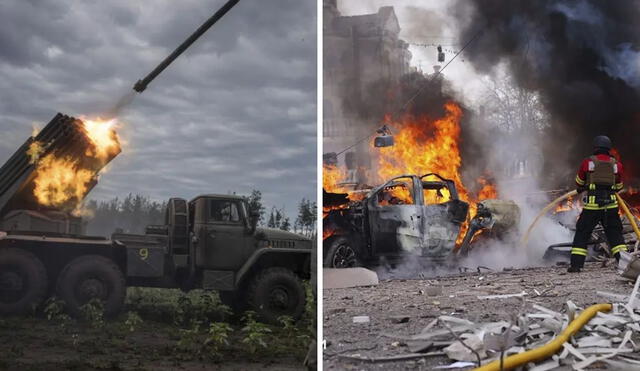Black Sunday. Russian Bombing Leaves dozens of dead in Ukrainian city
The bombing was one of the deadliest Russian attacks in the three-year invasion. Ukrainian interior minister, Igor Klomenko, indicates that the death toll could rise.

Today, Sunday, April 13, Russia launched ballistic missiles at the city of Sumi, located in northern Ukraine. The bombing impact area was near a church, and this attack coincides with a holiday celebrated today, "Palm Sunday" which is also the day of the Orthodox Church's celebration.
So far, the bombing has left 32 civilians dead and 84 injured, 10 of them children. After the attack, Ukrainian President Volodymyr Zelensky said that only a brazen person would attack civilians in this way and that, without support for Ukraine, Russia would continue this war.
The Role of the Sumi city in the War
The Sumi region borders the Russian province of Kusk. Therefore, Ukrainian army forces deployed there in August 2024 to control and deter the advance of Russian troops.
However, the Russian armed forces launched an offensive against the cities of Sumi and neighboring Kharkiv. Russian President Vladimir Putin ordered control of the Ukrainian army, which had already established strong positions in the border areas.
International positions on the Russian attack
The European Union (EU) has described today's bombing of the city of Sumi as "vile and criminal." It also considers this attack a horrible example of how the war continues only because of Russia's decision.
The governments of Spain and France condemn the bombing. British prime minister Keir Starmer, expressed his horror at the attacks and offered condolences to the families of the victims in the Sumi community.
Finally, NATO expressed its condolences to the Sumi community and noted the magnitude of the ballistic missile strikes on the deaths and injuries. NATO spokesperson Farah Dakhlallah said her thoughts were with the people and highlighted the holy day on which the attacks occurred.












